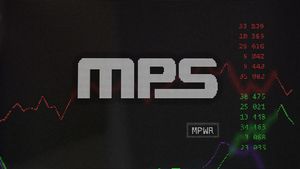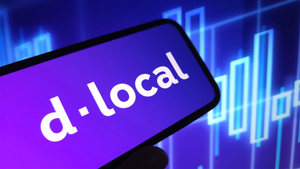
In a stunning turn of events that sent ripples through both the artificial intelligence and veterinary medical communities, a nascent AI company named OpenVet made headlines on October 8, 2025, with a bold assertion: its AI reasoning platform had achieved a "perfect 100%" score on the North American Veterinary Licensing Examination (NAVLE). The company's press release touted this as an unprecedented milestone, signaling an AI's complete mastery of the rigorous, gold-standard examination required for veterinary licensure across North America. The immediate significance of such a claim, if true, would have been transformative, potentially heralding a new era for AI in highly specialized professional fields.
However, the jubilation was short-lived and quickly overshadowed by a swift and unequivocal refutation from the International Council for Veterinary Assessment (ICVA), the authoritative body responsible for administering the NAVLE. The ICVA, in a stern letter to OpenVet and a subsequent public statement, unequivocally labeled the claim as "false," clarifying that no artificial intelligence system has ever been permitted to take, nor has it achieved a score on, the secure, proctored NAVLE. The organization further highlighted that exam questions are not publicly accessible, directly contradicting the premise of OpenVet's announcement. Following the ICVA's demand, OpenVet promptly removed the controversial press release from all its public channels, leaving a trail of questions about the veracity and motivation behind the initial claim, all unfolding just weeks before the current date of November 13, 2025.
Unpacking the Alleged Breakthrough and its Technical Implausibility
OpenVet's initial announcement, now retracted, vaguely described an "AI reasoning platform" designed for veterinary medicine, claiming it leveraged advanced natural language processing and diagnostic algorithms to understand and respond to complex medical scenarios. While specific technical details were conspicuously absent even in the original press release, the implication was that this platform could process vast amounts of veterinary knowledge, synthesize information, and apply clinical reasoning at a level equivalent to or surpassing a human expert. The "perfect 100%" score on the NAVLE would have suggested an AI capable of flawless recall, nuanced understanding of intricate medical cases, and precise application of veterinary principles across diverse species and conditions.
This claim immediately raised eyebrows within the AI research community and among industry experts. While AI has demonstrated impressive capabilities in passing other standardized tests, such as legal or medical school entrance exams, the NAVLE presents unique challenges. It assesses not only factual knowledge but also clinical judgment, problem-solving, and ethical reasoning in a professional context. Furthermore, the ICVA's firm stance on the exam's security protocols – administered only to human candidates under strict proctoring with non-public questions – made OpenVet's assertion technically implausible from the outset. Previous AI approaches to mastering such exams typically involve training on publicly available datasets and practice questions, a method rendered impossible by the NAVLE's secure nature. The initial reaction from credible AI researchers was one of skepticism and concern, highlighting the lack of transparency and verifiable evidence behind OpenVet's extraordinary claim, which ultimately proved to be unfounded.
Reputational Fallout and Heightened Scrutiny for the AI Industry
The OpenVet incident carries significant implications for AI companies, tech giants, and startups alike. Had the claim of acing the NAVLE been legitimate, it would have undoubtedly ignited a furious race among major AI labs and tech companies to replicate or surpass such a feat, particularly in the lucrative and impactful domain of healthcare. Companies like Alphabet (NASDAQ: GOOGL), Microsoft (NASDAQ: MSFT), and various well-funded AI startups specializing in medical diagnostics or drug discovery might have re-evaluated their R&D priorities to focus more intensely on AI-driven professional credentialing. The potential disruption to existing professional training, certification, and even the practice of veterinary medicine would have been immense, creating new markets for AI-powered diagnostic tools, decision support systems, and educational platforms.
However, the reality of the false claim has instead highlighted the severe reputational risks associated with unsubstantiated AI achievements. For OpenVet, a fledgling company, the immediate consequence is a significant blow to its credibility, potentially jeopardizing future funding, partnerships, and market trust. More broadly, this incident could lead to increased scrutiny from regulatory bodies, investors, and the public regarding AI companies' claims, particularly those pertaining to human-level or superhuman performance in critical professional domains. It underscores the critical need for robust, independent validation and transparent methodologies when announcing AI breakthroughs. While legitimate AI advancements continue to emerge, incidents like this risk fueling skepticism and mistrust, potentially hindering the adoption of truly beneficial AI technologies by making stakeholders wary of hype over substance.
The Broader AI Landscape: Hype, Ethics, and the Quest for Verifiable Milestones
The OpenVet episode fits into a broader, ongoing discussion within the AI landscape concerning the line between genuine innovation and overzealous marketing. In recent years, AI has achieved remarkable milestones, from mastering complex games to assisting in scientific discovery and generating human-quality text and images. These successes have sometimes led to a climate where ambitious, even sensational, claims are made, pushing the boundaries of what AI is truly capable of. This incident serves as a stark reminder of the ethical imperative for transparency and accuracy in reporting AI capabilities, especially when they intersect with public trust and professional standards.
The immediate impact of such a false claim is a temporary setback in public perception, potentially eroding confidence in the AI industry's self-regulation. It highlights the critical role of independent oversight bodies, like the ICVA, in verifying claims that impact professional integrity and public safety. While comparisons to previous AI milestones, such as DeepMind's AlphaGo defeating human Go champions or large language models passing bar exams with impressive scores, showcase genuine progress, the OpenVet incident stands as a cautionary tale against unverified assertions. It underscores the ongoing challenge of distinguishing between legitimate scientific breakthroughs and mere hype, a distinction crucial for the healthy and responsible development of artificial intelligence.
Charting Future Developments: Towards Greater Transparency and Validation
In the wake of the OpenVet controversy, several future developments are expected to take shape within the AI community and related professional fields. Near-term, there will likely be a heightened emphasis on transparent validation frameworks for AI performance, particularly when claims involve professional examinations or critical decision-making. AI companies aiming for credibility will need to proactively engage with independent testing bodies, provide detailed methodologies, and perhaps even open-source relevant components for peer review. The incident could also spur professional organizations, similar to the ICVA, to develop clearer guidelines and policies regarding AI interaction with their certification processes, potentially leading to new standards for "AI certification" in specific domains.
Long-term, this event might accelerate the development of AI systems designed not to replace human professionals, but to augment them, offering decision support, diagnostic assistance, or advanced training tools. The challenges that need to be addressed include establishing universally accepted benchmarks for AI performance in complex, real-world scenarios, ensuring data privacy and security, and fostering interdisciplinary collaboration between AI developers and domain experts. Experts predict a continued push towards explainable AI (XAI) and verifiable AI, where the reasoning process of an AI is not a black box but can be audited and understood. This incident, while negative, ultimately reinforces the need for rigorous scientific method and ethical considerations as AI continues its integration into critical sectors.
A Sobering Assessment of AI's Path Forward
The OpenVet NAVLE claim and its subsequent retraction offer a comprehensive wrap-up of several key takeaways for the artificial intelligence industry. Firstly, it underscores the persistent tension between the rapid pace of AI innovation and the critical need for verifiable, evidence-based claims. Secondly, it highlights the invaluable role of established professional bodies in safeguarding standards and correcting misinformation, acting as crucial checks against unchecked hype. Finally, it serves as a powerful reminder that while AI's potential is immense, its development must be grounded in transparency, accountability, and ethical responsibility.
This development's significance in AI history will likely be remembered not for a breakthrough, but as a cautionary tale – a moment that underscored the importance of integrity in an increasingly competitive and high-stakes technological landscape. It emphasizes that true progress in AI is built on rigorous testing, peer review, and a commitment to truth, rather than sensationalism. In the coming weeks and months, the industry will be watching for how other AI companies respond, whether new validation standards emerge, and how the public's trust in AI evolves. The incident may ultimately contribute to a more mature and responsible approach to AI development and communication, ensuring that future advancements are met with deserved recognition rather than skepticism.
This content is intended for informational purposes only and represents analysis of current AI developments.
TokenRing AI delivers enterprise-grade solutions for multi-agent AI workflow orchestration, AI-powered development tools, and seamless remote collaboration platforms.
For more information, visit https://www.tokenring.ai/.





